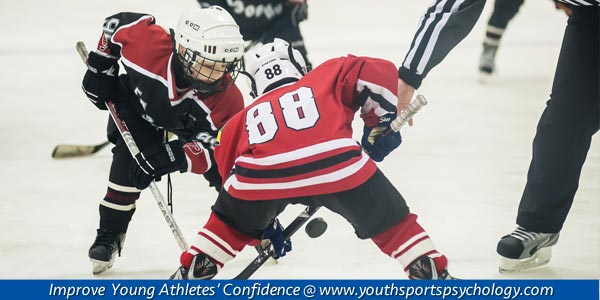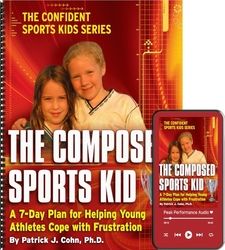
Positive Thinking in Youth Sports
“I can’t make three-pointers.”
“I can’t keep that big guy from scoring.”
“I can’t score goals with my left foot.”
“I can’t” statements hurt kids’ confidence.
This is called negative thinking, and it’s a mental game no-no. Lots of kids embrace this kind of thinking when they’re playing sports.
As parents and coaches, you need to point out when kids are using “I can’t statements” and other forms of negative thinking (“I’m not tall enough to be a good player,” for example).
And then it’s your job to turn those statements into truthful, positive statements—and help kids overcome negative thinking from their sports experience.
For example, when young athletes say, “I’m not tall enough to be a good player,” you might remind the sports kids that they’re quick on their feet—and that’s what they should concentrate on.
When young athletes say, “I can’t pass with my left foot,” remind them that they are aggressive players and pass well with their right feet—and that’s what they should concentrate on.
When kids focus on what they do well, and when they aren’t distracted by “I can’t” statements and other forms of negative thinking, they’re more likely to feel confident and to perform well.
They need to feel comfortable enough to take risks and play freely; that’s what leads to a youth sports experience that will benefit kids throughout their lives.
Related Articles on Youth Sports:
- How to Turn Pregame Jitters into a Positive
- Ensure Young Athletes’ Self-Talk is Positive
- Why It’s So Important for Athletes To Avoid Negative Thinking
*Subscribe to The Sports Psychology Podcast on iTunes
*Subscribe to The Sports Psychology Podcast on Spotify
The Composed Sports Kid

“The Composed Sports Kid” audio and workbook digital download program for young athletes and their parents or coach helps kids cope with frustration and anger in sports. Help your sports kids learn how to manage expectations and let go of mistakes so they can keep their head in the game.
The Composed Sports Kid system is really two programs in one–one program to train parents and coaches how to help their kids practice composure, and one program that teaches young athletes–ages 6 to 13–how to improve composure, let go of mistakes quickly, have more self-acceptance, and thus enjoy sports more!
